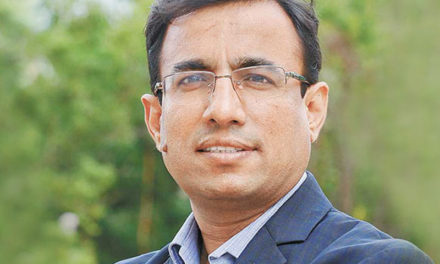He entered the IT industry almost 20 years ago, fresh, full of energy and a passion for technology. He travelled all over the world, working on complex software for different customers.
Life was never so good.
He always worked hard, always enjoyed it, and his boss was always happy with him! Now, as he grows in age and experience, he expects more money, more responsibility, probably greater comfort and more security.
He has earned it, right?
My father, a tech worker in the 20th century, would say, “of course”. I wouldn’t bet on that.
A friend recently lost his job in an acquisition. It took him more than three months to land another, and it was a compromise in terms of salary and role. Another friend, a young manager who is 28, says he quit because his boss, a manager in his 50s, felt threatened by his subordinates and stunted their growth. Yet another friend, a technical wizard in his late 30s, works as an architect for a software major. He complains he is falling behind many of his peers as he enjoys individual technical roles and doesn’t have the patience or desire to be a “mere” man manager. The law of diminishing returns seems to be manifesting itself in strange ways. Paradoxically, the industry worldwide continues to complain of a huge talent shortage. This seems to be a global phenomenon. In the global IT business, major paradigm shifts every 10 years lead to basic changes in existing technological and business models.
It is not always easy to adapt to them. For a manager who is recruiting, there is often the option of a younger person, who knows the latest stuff, does not have “baggage” of old technologies and old mindsets, and is willing to work at a lesser salary. The decision is easy. Especially in India. The software services industry, which dominated Indian IT in the last decade or so, thrives on the assembly-line model and its success stems from armies of junior engineers churning out reams of code which need layers and layers of supervision to manage it.In this pyramid-like structure, the number of positions reduce as you go up and the years of experience are often considered more of a liability than an asset. The situation is compounded by the fact that unlike the US and Europe, there’s no law in India restricting companies from discriminating on the basis of age.
The average technical professional, once he crosses a certain limit, finds himself squeezed. He has limited opportunities for senior roles, and the hiring process excludes him from applying for junior positions. How do you solve it? As long as the business gets a smarter and a younger person willing to work for a lesser salary, companies won’t worry. They won’t do much to solve it either, other than invest in retraining to an extent and sometimes be a little patient towards the more loyal employees. Over time, mindsets will change, competence and fit with the job role will become the primary criteria. Young is not always good, old is not always bad, and more experience does not always mean more knowledge or better decisions. It is up to the individual, who needs to make the effort to understand his capabilities and potential, long-term aspirations and constraints. A rapid growth in career, often a result of being in the right place at the right time, can no longer be taken for granted.










